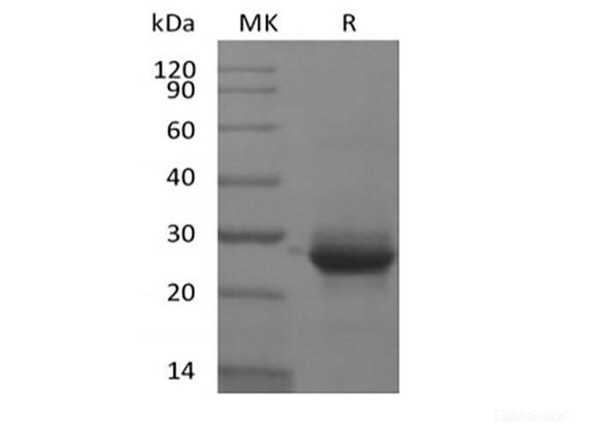| Sequence: | Thr2-Cys185(Gly12Cys) |
| Accession: | AAH13572.1 |
| Storage: | Generally, lyophilized proteins are stable for up to 12 months when stored at -20 to -80°C. Reconstituted protein solution can be stored at 4-8°C for 2-7 days. Aliquots of reconstituted samples are stable at < -20°C for 3 months. |
| Shipping: | This product is provided as lyophilized powder which is shipped with ice packs. |
| Formulation: | Lyophilized from a 0.2 μm filtered solution of PBS, pH 7.4. Normally 5 % - 8 % trehalose, mannitol and 0.01% Tween80 are added as protectants before lyophilization. Please refer to the specific buffer information in the printed manual. |
| Reconstitution: | Please refer to the printed manual for detailed information. |
| Background: | K-Ras belongs to the small GTPase superfamily, Ras family. As other members of the Ras family, K-Ras is a GTPase and is an early player in many signal transduction pathways. It is usually tethered to cell membranes because of the presence of an isoprenyl group on its C-terminus. K-Ras functions as a molecular on/off switch. Ras proteins bind GDP/GTP and possess intrinsic GTPase activity. Plays an important role in the regulation of cell proliferation. Plays a role in promoting oncogenic events by inducing transcriptional silencing of tumor suppressor genes (TSGs) in colorectal cancer (CRC) cells in a ZNF304-dependent manner. Besides essential function in normal tissue signaling, the mutation of a K-Ras gene is an essential step in the development of many cancers. Several germline K-Ras mutations have been found to be associated with Noonan syndrome[4] and cardio-facio-cutaneous syndrome. Somatic K-Ras mutations are found at high rates in Leukemias, colon cancer, pancreatic cancer and lung cancer. |






